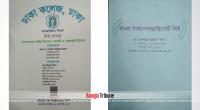 British Prime Minister Theresa May on Monday gave the first major indication that immigration rules for non-EU citizens like Bangladeshis are set to be closely aligned with those for European Union (EU) nationals once Britain has left the economic bloc by next year.
British Prime Minister Theresa May on Monday gave the first major indication that immigration rules for non-EU citizens like Bangladeshis are set to be closely aligned with those for European Union (EU) nationals once Britain has left the economic bloc by next year.
The UK is at present bound by the EU’s freedom of movement rules, which offers nationals from the 27 EU member-countries an automatic right to work and settle in Britain. On the other hand, non-EU countries like Bangladesh are subject to a strict visa regime and quotas under specific categories. In an interview with the BBC, the British Prime Minister said on Monday that the vote in favour of Brexit in the June 2016 referendum was a vote to end this dual system of migration.
“The message from the British people was very simple. It was they didn’t want a situation where they could see people coming from the European Union having those automatic rights in terms of coming here to the United Kingdom, and a set of rules for people outside the European Union,” May said in response to a question about the UK’s post-Brexit immigration plans.
“What we will be doing is putting forward a set of rules for people from the European Union and people from outside the European Union,” she said.
The government is set to publish its detailed immigration proposals in the coming months, which is widely expected to mark a general toughening of stance on controlling the numbers that come into the country in line with the Conservative party’s target to reduce immigration into the UK. Theresa May has so far refused to rule out any post-Brexit preferential treatment for EU migrants, one of the issues which has deeply divided MPs and ministers within her own party.
However, the idea that EU and non-EU migrants would get a level playing field in terms of immigration was the central plank on which many of the leading Brexiteers campaigned for a vote in favour of leaving the economic bloc. Priti Patel, a former UK Cabinet minister and prominent pro-Brexit campaigner, had in fact used the plight of the Bangladeshi community in recruiting the right staff for its curry industry as a strong case in favour of voting to leave the EU.
As part of her appeal in favour of the "Vote Leave" campaign, she had said: “Curry is often voted Britain’s favourite meal. But there are fewer and fewer chefs able to come into the UK to cook curry dishes and train the next generation of chefs. The curry industry supports 70,000 jobs and is worth more than £3 billion to our economy.
"By voting to leave the EU, we can take back control over our borders and immigration policy.”
However, with very little change on policy in the wake of Brexit, the British Bangladeshi curry industry had become disillusioned by what they termed as "Brexit Betrayal".
“Staff shortages mean many of us are struggling to meet customer expectations, and it is almost impossible to expand as we would like to," said Enam Ali, leading UK-based restauranteur from Sylhet and founder of the annual British Curry Awards. He went on to set up Le Raj Academy in partnership with North East Surrey College of Technology (NESCOT) in Epsom, Surrey, to train the next generation of curry chefs in an effort to meet the staff shortages faced by the sector.
Theresa May’s latest comments on the issue of immigration this week mark the six-month point to Britain’s formal exit from the EU in March next year. The exact contours of the UK's new visa regime will become clear in the coming weeks but, meanwhile, there is some hope that all sections of EU and non-EU migrants would be treated equally.
 Others
Others
39558 hour(s) 26 minute(s) ago ;
Morning 01:20 ; Tuesday ; Apr 22, 2025
UK indicates EU and non-EU immigration rules to be aligned post Brexit
Send
Aditi Khanna, London
Published : 21:13, Sep 17, 2018 | Updated : 21:15, Sep 17, 2018
Published : 21:13, Sep 17, 2018 | Updated : 21:15, Sep 17, 2018
0 ...0 ...
/hm/
Topics: Top Stories
- KOICA donates medical supplies to BSMMU
- 5 more flights to take back British nationals to London
- Covid19: Rajarbagh, Mohammadpur worst affected
- Momen joins UN solidarity song over COVID-19 combat
- Covid-19: OIC to hold special meeting
- WFP begins food distribution in Cox’s Bazar
- WFP begins food distribution in Cox’s Bazar
- 290 return home to Australia
- Third charter flight for US citizens to return home
- Dhaka proposes to postpone D8 Summit
Unauthorized use of news, image, information, etc published by Bangla Tribune is punishable by copyright law. Appropriate legal steps will be taken by the management against any person or body that infringes those laws.
Bangla Tribune is one of the most revered online newspapers in Bangladesh, due to its reputation of neutral coverage and incisive analysis.
F R Tower, 8/C Panthapath, Shukrabad, Dhaka-1207 | Phone: 58151324; 58151326, Fax: 58151329 | Mob: 01730794527, 01730794528


